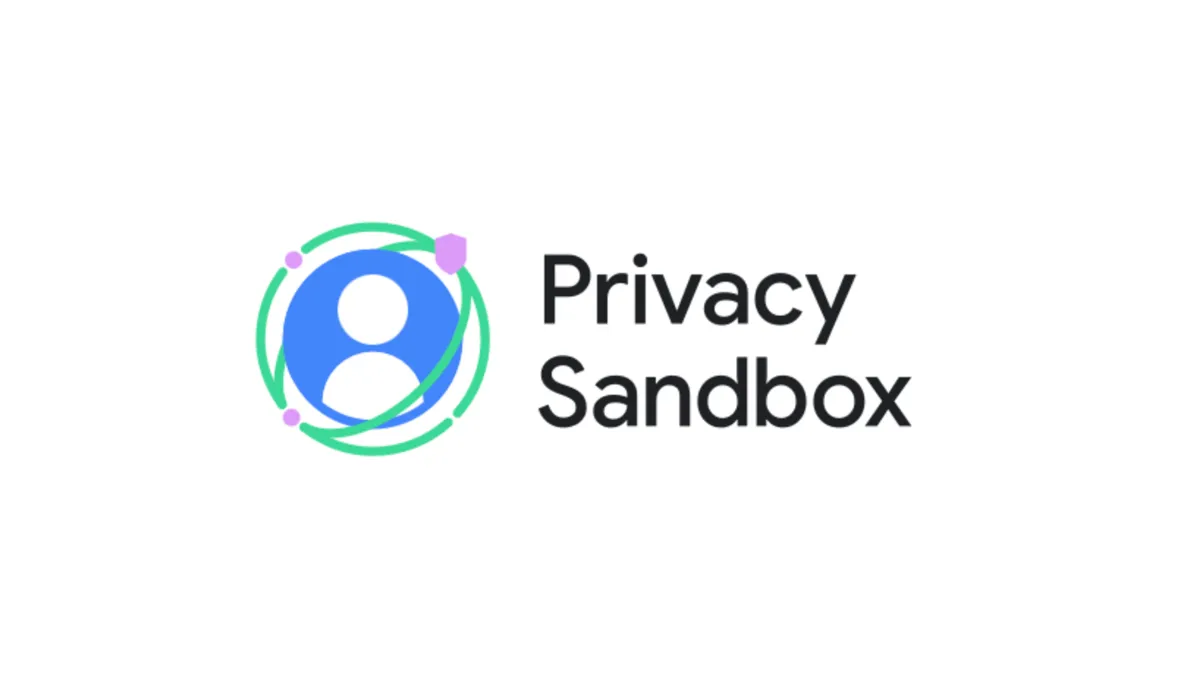
Yesterday, Google completed its dramatic reversal regarding third-party cookies, announcing it would maintain their usage in Chrome. This announcement, made five days after the company was found to be a monopoly in the Department of Justice's AdTech case on April 17, 2025, marks the end of a turbulent five-year journey that saw significant industry investment in Google's "Privacy Sandbox" initiative.
Get the PPC Land newsletter ✉️ for more like this
On April 22, 2025, Anthony Chavez, VP of Privacy Sandbox at Google, revealed that the company would "maintain our current approach to offering users third-party cookie choice in Chrome, and will not be rolling out a new standalone prompt for third-party cookies." This announcement comes just five days after Google was judged a monopoly in the DOJ's AdTech case on April 17, 2025, timing that many industry experts consider far from coincidental.
According to Mathieu Roche, Co-founder & CEO at ID5.io, "Today, Google completed its 180 degrees turn and announced that it would, after all, keep using 3rd party cookies in its Chrome browser. After 5 years of false starts and real investments by many companies in their so-called 'Privacy Sandbox' solution, this is the worst possible season finale for this very disappointing show."
The timing raises questions about Google's motives. Roche speculates: "This announcement comes way too soon after Google was judged a monopoly in the DOJ's Adtech case for it to be a coincidence. Their monopoly in Search and Adtech has been built in large part on their control of the last mile with the customer - namely their ownership of the Android operating system and the Chrome browser."
The Privacy Sandbox initiative, launched in 2019, aimed to develop new ways to strengthen online privacy while ensuring a sustainable, ad-supported internet. Google initially planned to phase out third-party cookies in Chrome by 2022, but repeatedly delayed this timeline amid technical challenges and regulatory scrutiny.
The UK's Competition and Markets Authority (CMA) has been closely monitoring the development of Privacy Sandbox. In its most recent assessment published on November 11, 2024, the CMA emphasized that "competition concerns remain under Google's revised approach" and that the current commitments between the regulator and Google need to be updated to reflect the revised strategy.
 PPC LandLuís Rijo
PPC LandLuís Rijo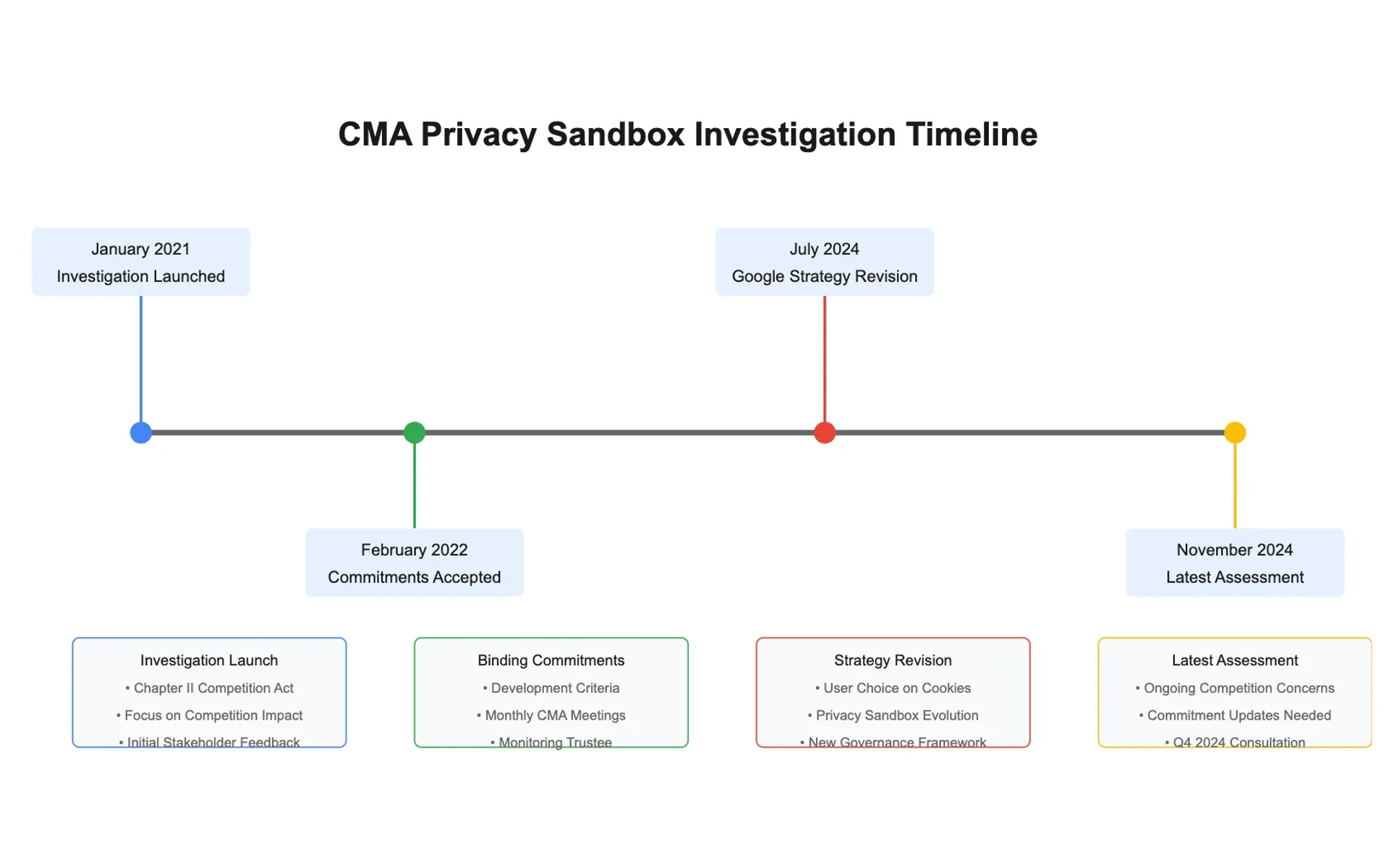
Industry testing of the Privacy Sandbox APIs revealed significant challenges. In July 2024, Criteo's market testing indicated that publisher revenue could decline by up to 78% if third-party cookies were replaced with the current version of the Privacy Sandbox. Even with the Protected Audience API enabled, publishers might see a 60% drop in revenue.
 PPC LandLuís Rijo
PPC LandLuís Rijo
Index Exchange, a major supply-side platform, also reported concerning findings from its testing, including a 33% decline in cost-per-thousand-impressions (CPMs) for Sandbox impressions compared to those using cookies.
Technical Limitations
The IAB Tech Lab, in its comprehensive analysis released in February 2024, identified several key limitations of the Privacy Sandbox:
- Measurement challenges: Essential metrics like impressions and clicks shifting to aggregated reporting, hindering campaign analysis and optimization
- Brand safety concerns: Difficulty ensuring ad placement aligns with brand values
- Technical complexity: Significant retooling required for programmatic advertising
- Competitive advantages: Potential for Google to gain a larger market share due to its dominance in Privacy Sandbox integration
 PPC LandLuís Rijo
PPC LandLuís Rijo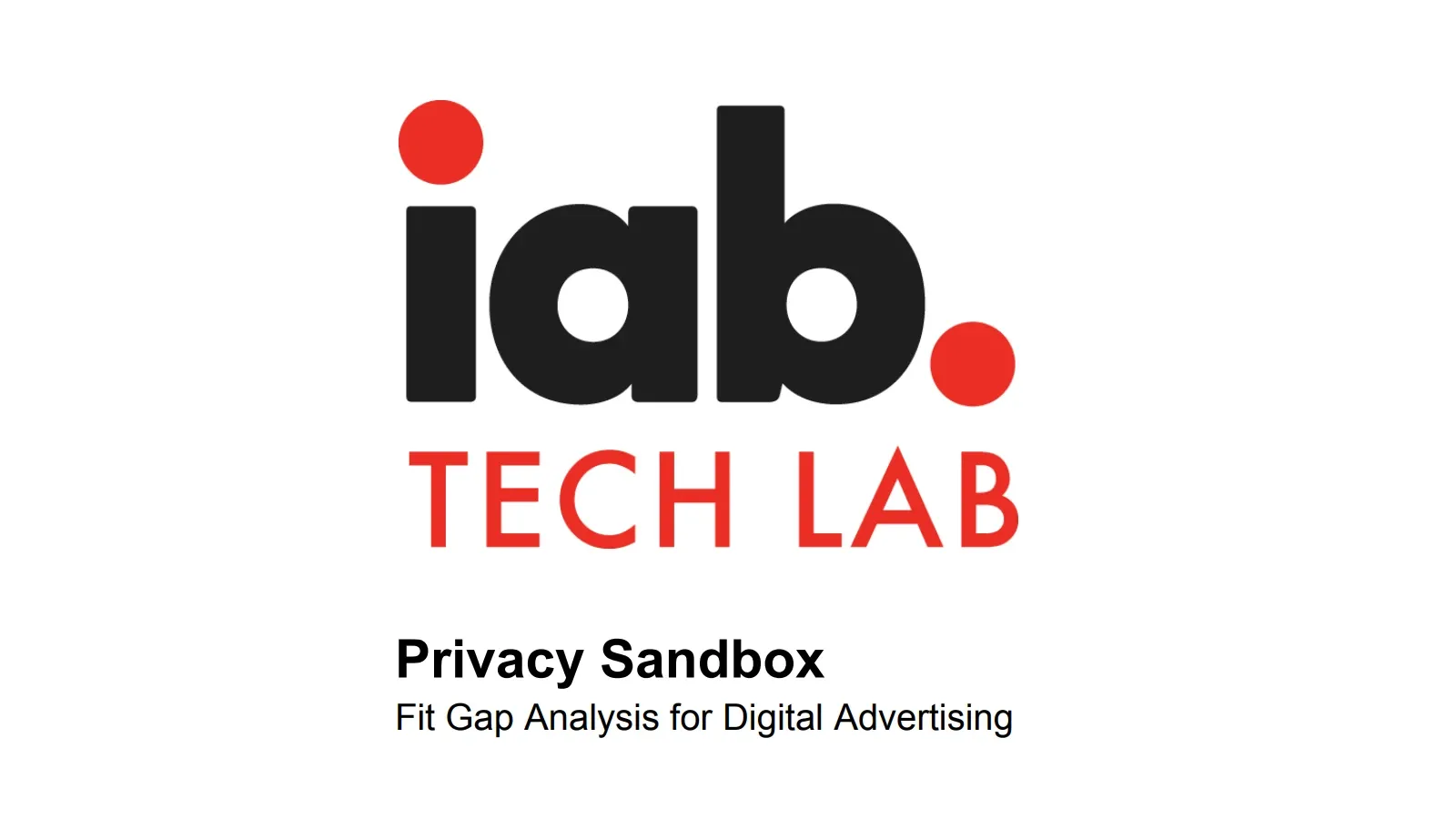
These concerns were validated in Criteo's testing, which observed a potential market share increase for Google Ad Manager from 23% to 83%.
The announcement has been met with mixed reactions from the industry. Criteo welcomed Google's decision "on behalf of the entire ecosystem," suggesting relief among ad tech companies that had struggled to adapt to the proposed changes.
Experts note that the practical impact of cookies in today's digital landscape is already diminished. Mathieu Roche points out: "In 2025, consumers spend less than 25% of their time interacting with digital content & services through a web browser. And only 60% of those web browsers support 3P cookies. So overall, cookies are a useful mechanism to recognize and engage with people for only about 15% of the time they spend online."
The rest of users' digital time is spent in "cookie-less" environments, including podcasts, Connected TV channels, mobile applications, and gaming platforms. This reality has already forced the industry to develop alternative targeting and measurement solutions.
Despite maintaining third-party cookies, Google plans to continue enhancing privacy protections in Chrome's Incognito mode, which already blocks third-party cookies by default. This includes the planned launch of IP Protection in Q3 2025.
The company also indicates that Privacy Sandbox APIs will continue to be available, with plans to "engage with the industry to gather feedback and share an updated roadmap for these technologies, including our future areas of investment, in the coming months."
For publishers and marketers, the announcement provides immediate relief from a potentially disruptive transition but doesn't resolve the longer-term challenges of privacy-centric advertising. The industry will likely continue developing solutions that work across browsers and platforms, preparing for a future where user consent and privacy become increasingly central to digital advertising.
Timeline
- August 2019: Google announces the Privacy Sandbox initiative
- January 2020: Google announces plans to phase out third-party cookies in Chrome within two years
- August 2020: Google launches Trust Token API
- January 2021: UK's CMA launches investigation into Privacy Sandbox
- February 2022: Google accepts legally binding commitments with the CMA
- July 2022: Google delays cookie deprecation to 2024
- February 2024: IAB Tech Lab releases analysis of Privacy Sandbox fit gaps
- July 2024: Google shifts focus to user choice for third-party cookies
- September 2024: CMA continues oversight of Google's Privacy Sandbox changes
- November 2024: CMA demands changes to Google Privacy Sandbox
- April 22, 2025: Google announces it will maintain third-party cookies in Chrome

